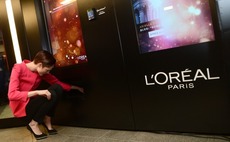
TPG faces a challenge in Li Ning
TPG Capital worked its magic on women’s shoe retailer Daphne three years ago, but can it do the same for beleaguered Chinese sportswear chain Li Ning? Investors clearly hoped as much, with the Hong Kong-listed company’s stock rising 20% in response to the announcement.
Despite China's fast-growing consumer classes, Li Ning has been struggling for over a year to maintain its sales in the face of keen competition from both local and international brands. The com...
Latest News
Asian GPs slow implementation of ESG policies - survey
Asia-based private equity firms are assigning more dedicated resources to environment, social, and governance (ESG) programmes, but policy changes have slowed in the past 12 months, in part due to concerns raised internally and by LPs, according to a...
Singapore fintech start-up LXA gets $10m seed round
New Enterprise Associates (NEA) has led a USD 10m seed round for Singapore’s LXA, a financial technology start-up launched by a former Asia senior executive at The Blackstone Group.
India's InCred announces $60m round, claims unicorn status
Indian non-bank lender InCred Financial Services said it has received INR 5bn (USD 60m) at a valuation of at least USD 1bn from unnamed investors including “a global private equity fund.”
Insight leads $50m round for Australia's Roller
Insight Partners has led a USD 50m round for Australia’s Roller, a venue management software provider specializing in family fun parks.







